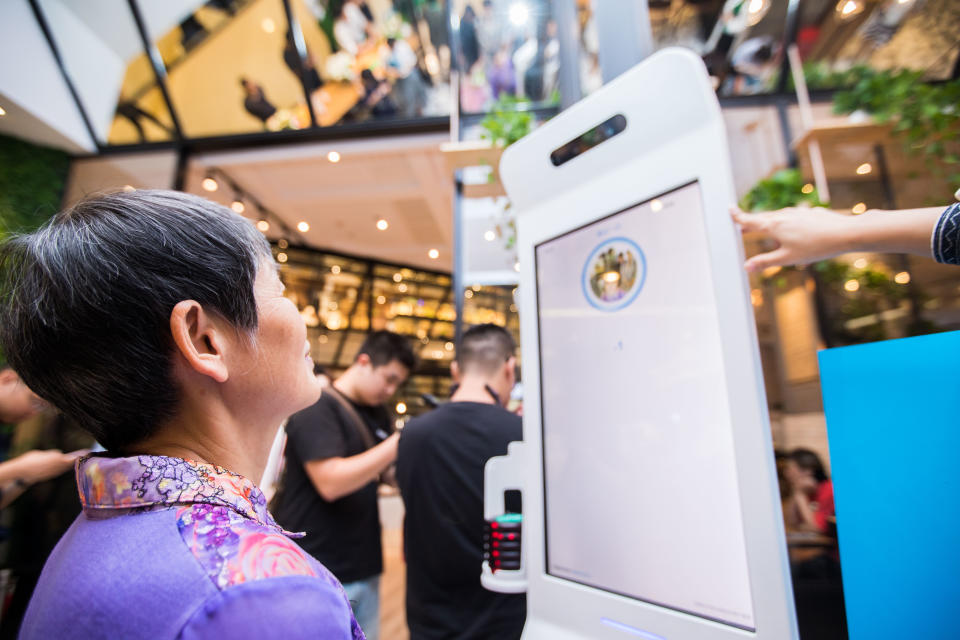Pay with your face system coming to Canada, but not everyone is on board
The next time you forget your wallet at home, you may be able to pay with your face.
A Toronto-based grocery store chain says it plans on deploying what is being called Canada’s first facial recognition payment system in at least one of its stores by early next year.
But one security expert is raising concerns over the use of biometric data in the name for convenience, and the potential it carries for security breaches of such highly-sensitive and personal information.
Foodymart, a Chinese supermarket chain with six locations in the Toronto area and two in B.C., said in an interview that it plans on purchasing facial recognition payment machines from SnapPay, a Toronto-based platform that specializes in bringing international payment methods such as AliPay and WeChat Pay to Canadian retailers.
Neither company would disclose the details of the purchase agreement, which is still being finalized, but SnapPay said it is hoping to deliver its first facial payment system to FoodyMart in the first quarter of next year.
SnapPay launched the facial recognition technology earlier this month, which it says will allow customers to quickly pay for goods using a snapshot of their face, minimizing the time spent at checkout. Customers will be able to submit a three-dimensional scan of their face and then link it to their payment account. When in store, a relatively quick scan of a customer’s face will process the payment. The technology was developed by SnapPay in Toronto, with some of the hardware coming from China, where facial recognition systems are more commonplace.
“I think biometrics are probably the way of the future,” Chris Renton, SnapPay’s chief growth officer, said in an interview with Yahoo Finance Canada.
“I think that biometrics will not only drive payments, but it will be used in a lot of different industries.”

Ryan Li, Foodymart’s executive manager, sees the technology as an opportunity to grow his company’s business by attracting new customers, as well as cutting down on checkout times. Li also said between 50 and 60 per cent of Foodymart customers have lived in China, and expects most of them have previously interacted with a facial recognition payment system.
China has among the fastest rates of adoptions when it comes to non-cash payments. According to a 2018 McKinsey report, 40 per cent of in-person spending in China was through mobile digital wallets. The report said that China alone will generate half a trillion dollars in net new annual payment revenue by 2022.
However, the technology raises concerns over privacy, security and surveillance – and not everyone is on board with it.
Brenda McPhail, director of the Canadian Civil Liberties Association specializing in privacy and security, points to the potential for breaches and hacks, and mentions there is no infrastructure in place to protect people whose biometric data is stolen.
“I find it profoundly troubling that we’re going to integrate technology that poses so many risks into mundane daily tasks,” McPhail said in an interview with Yahoo Finance Canada.
“Your face is not the same as your debit card number or your credit card number. It cannot be replaced and we don’t currently have systems to monitor fraudulent uses of our biometrics.”
SnapPay said in a statement that the company would treat facial recognition data with “heightened data security requirements.”
“We are subject to very high levels of regulatory compliance and have extremely rigorous data security policies in place. We leverage third party audits to make sure we continue to meet escalated data security standards,” the company said.
“Our core operating principle is to operate with and provide our customers with the highest level of data security possible and will not release a solution in-market without appropriate data security in place.”
Still, McPhail says there needs to be additional requirements around technology that uses biometric data.
“We need to have rules in place and standards around security and implementation of this technology,” she said. “And we fundamentally need to have the sort of public conversations about what is and isn’t acceptable when it comes to this kind of information that is so deeply sensitive.”
Download the Yahoo Finance app, available for Apple and Android.

